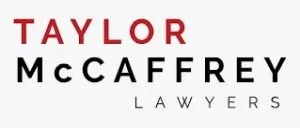This year more than ever our conversations have included the words 'communicable disease.' In response to the rapidly increasing impacts of COVID-19, individuals, businesses, governments, and industries have all been scrambling to learn and adapt.
Public health-mandated restrictions have changed well-established operations in fundamental ways. Manufacturing as an industry plainly does not lend itself to employees working from home. How to safely and legally have employees come into the workplace leads to various concerns for manufacturers and their employees alike and raises many challenging liability-related questions.
One of the toughest questions when considering liability is whether the communicable disease is work-related.
No employer wants to be the actual or perceived source of risk for its employees. Many cases of COVID-19 are not contracted or spread in the workplace, and just because an employee becomes ill does not necessarily mean that has anything to do with the workplace and make the employer liable. If the employer has failed to do what is required, fairly or not, there is a greater likelihood the employer will be blamed. On the other hand, if the employer has done what is required, the likelihood of blame decreases.
With this in mind, there are four main legal grounds for potential liability that manufacturers must consider: workplace safety & health, negligence, human rights, and privacy rights.
Workplace Safety & Health
Both employers and employees have an obligation to ensure the health and safety of their workplace under workplace safety and health legislation. Apart from specific legislated requirements applicable to the specific industry, these obligations include taking reasonable steps to protect employees from a contagious disease such as COVID-19.
Employers have the ability to control some aspects of that environment, and the inability to control others. Manufacturers are required to do what they reasonably can regarding what they can control.
For example, this would include creating barriers between workstations, requiring masks, mandating frequent hand washing, disinfecting high traffic areas, and controlling how people move, interact, and gather. These should sound familiar this far into a global pandemic and are common sense for many, but for manufacturers this is more than common sense, they are legal requirements. It's your responsibility to ensure there are protocols in place, your staff are aware of those protocols, they are required to follow these protocols, and there are disciplinary consequences for failing to do so.
Review & update
What we know about COVID-19 is changing, and so best practice is that your policies are reviewed and updated regularly as our knowledge changes, because you clearly would not be taking reasonable steps if your policies were based on outdated knowledge. Employees need to be trained on and informed of those evolving policies, which should be in written form and readily available for employees to reference in an easy to access place.
Under workplace safety and health legislation, workers have the right to refuse work they reasonably believe constitutes a danger to their safety and health, or that of another person should they perform the task. This includes a disease like COVID-19. If these concerns are raised by an employee, manufacturers have the legal responsibility to treat the objection like they would an objection to any other workplace hazard.
The consequences for failing to ensure a safe workplace can be significant. In Manitoba, for example, an inspection officer can impose improvement or stop-work orders, and prosecution for offences can lead to fines for a first offence of not more than $250,000, in the case of a continuing offence, to a further fine not exceeding $25,000 for each day during which the offence continues, and for a second or subsequent offence up to double that.
The Workers Compensation Board of Manitoba requires that workplace injuries resulting in time missed from work or certain medical treatment be reported within five business days. It's not always clear when a case of COVID-19 may be work-related, but if it is, it must be reported within that timeline. The Workers Compensation Board will consider each claim on a case-by-case basis to determine if a worker contracted the virus as a result of an exposure arising during the course of their employment.
Human Rights
If an employer is actually or should be aware of any particular physical or mental vulnerability (whether COVID-19-related or otherwise), or perceives one, there may be a duty to accommodate the person in question to the point of undue hardship based on human rights law. This can trigger a legal obligation to proactively inquire of the employee to obtain information and search for solutions. Failure to do so can lead to a human rights claim, and liability even if the employer did not intend to discriminate but rather quite innocently failed to live up to its obligations.
Negligence
While employees cannot sue an employer for negligence if the workplace is covered by the workers compensation system, third parties such as customers, could. Some jurisdictions like Ontario and British Columbia have begun to take steps to protect individuals, businesses or other organizations against COVID-19 exposure related lawsuits if they have made an honest effort to follow public health guidelines. This kind of legislative change has not yet been introduced in Manitoba but may offer some protection in other jurisdictions. Still, wherever you operate, taking all reasonable steps to protect everyone from communicable diseases in your workplace is the best practical solution.
Privacy
Employees have a right to privacy regarding their personal and medical information. When collecting or disclosing any personal health information employers must be careful to respect such privacy rights. This of course has to be balanced against the need to take reasonable steps to ensure a safe workplace for others. Most likely an employer would be obliged to disclose the fact of a positive test but not necessarily the identity of the individual who tested positive. While it would depend on the details, that disclosure might have to extend to describing where and when the person worked. In a smaller workplace this might have the practical effect of identifying the individual, which arguably makes the employer liable for violating that employee's privacy.
Asking employees for their consent is the simplest way to avoid any liability problems with privacy concerns. It is important to remember though, when asking an employee to consent to the sharing of their personal or health information, they must be free to refuse.
Keep health and safety a priority
There is no doubt this era marks a unique and challenging time for employers, their employees, and their customers. Manufacturers should of course be aware of their specific legal obligations and the potential liabilities that arise from those obligations. Beyond that though, the priority should be on doing whatever reasonably can be done to promote health and safety. Everyone doing their best to keep workplaces safe will go a long way to getting all of us through this.
Originally published in Prairie Manufacturer
The content of this article is intended to provide a general guide to the subject matter. Specialist advice should be sought about your specific circumstances.


